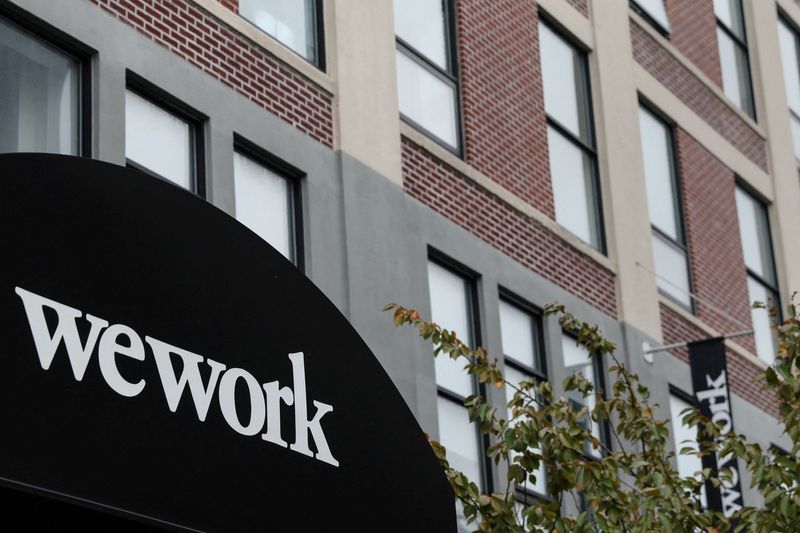This post was originally published on this site
https://i-invdn-com.investing.com/trkd-images/LYNXNPEK310HH_L.jpgThe shared office space provider, once privately valued at $47 billion, filed for bankruptcy in November as it racked up losses on its long-term leases after demand for office space plunged during the pandemic and from a shift to hybrid working.
The SoftBank-backed company’s post-bankruptcy business plan is premised on a significant reduction in future rent costs from its landlords.
The company said on Tuesday it had agreed to amend about 150 leases to align with current real estate market conditions and was in the process of exiting another 150 leases.
WeWork in November reached an agreement with more than 90% of its bondholders to convert $3 billion of debt into equity. SoftBank (TYO:9984), which currently owns about 70% of the company, would retain an equity stake under the proposed restructuring.

Meanwhile, WeWork co-founder Adam Neumann has submitted a bid of more than $500 million to buy back the company, with the financing process currently unclear.
Under Neumann, WeWork rapidly expanded to become the most valuable U.S. startup. But his pursuit for growth at the expense of profit and revelations about his eccentric behavior led to his ouster and derailed an initial public offering in 2019.

